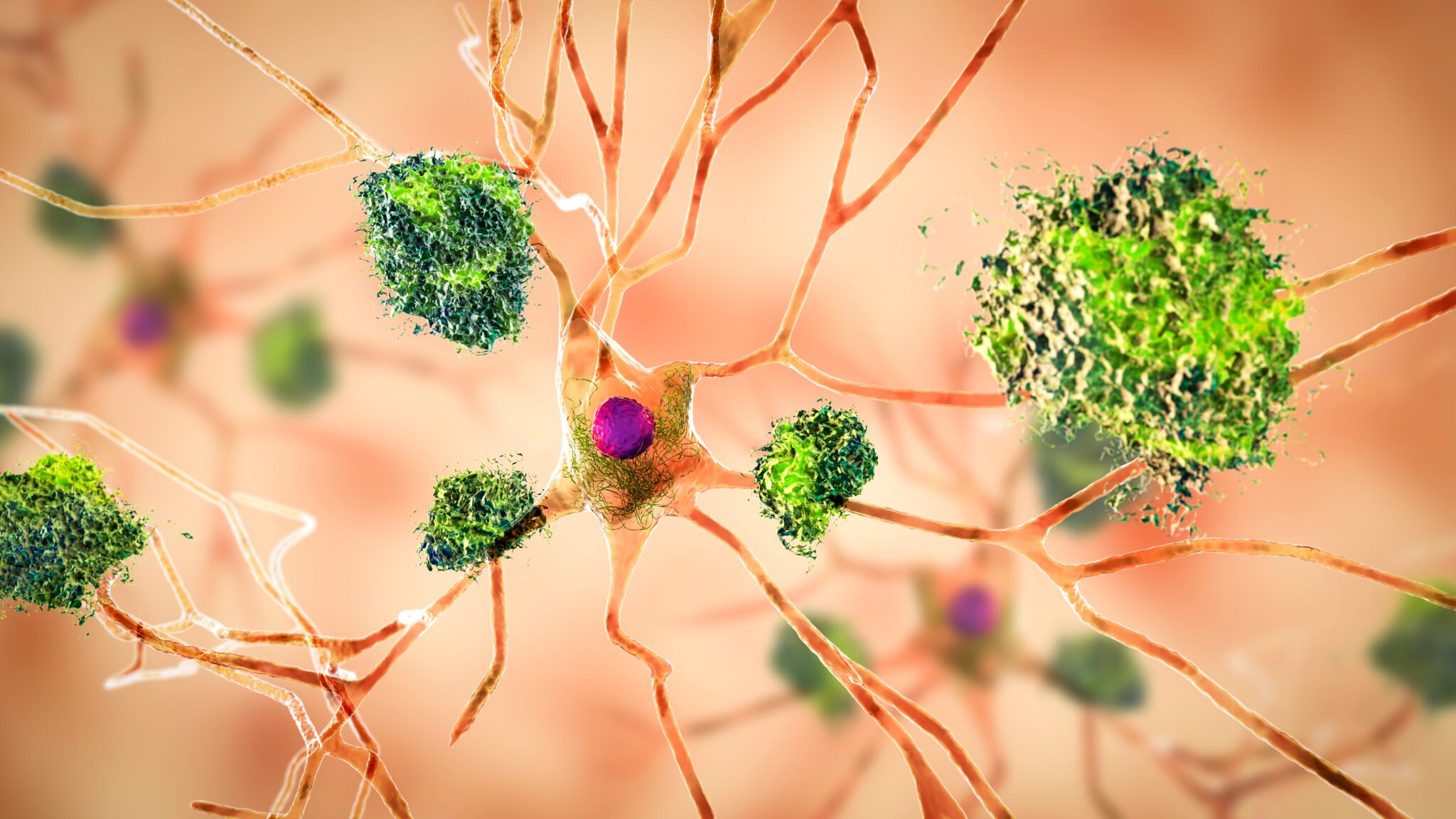Summary: Accumulation of amyloid-beta appears to play a central role in the development of Alzheimer’s. However, researchers have a limited understanding of the production of amyloid protein in brain cells. But new studies show that the production of amyloid-beta protein is increased in those with higher cholesterol synthesis by astrocytes (supporting cells in the brain) and its transportation with the help of apoE protein. It means that regulating the production and transportation of cholesterol by astrocytes may help prevent amyloid-beta overproduction and plaque formation. Thus, it could be a way to prevent Alzheimer’s or slow down its progress.
It could also mean that the accumulation of amyloid-beta could be a surrogate marker of disease, with accumulation due to localized inflammation and lack of clearance.
Keywords: amyloid-beta, brain, Alzheimer’s, astrocytes, cholesterol, apoE

However, researchers are not sure why this accumulation of amyloid and tau plaques occurs. They are unsure if the formation of these plaques is the leading cause of Alzheimer’s or formation of these plaques happens as a result of something else. Demystifying this puzzle may help find the treatment of the condition.
Researchers know that many metabolic disorders result from changes in lifestyle that occurred in the last century or so. They also know that it has led to the dysregulation of cholesterol metabolism, causing a higher prevalence of heart diseases and stroke. However, now a new study shows that cholesterol may play a role in Alzheimer’s, too.
Researchers have also studied the role of the most abundant cells in the brain: astrocytes. They almost tile the whole brain and are about five times more than neurons. They are needed for the working of brain cells neurons. They provide brain cells with vital support. Nonetheless, when we talk about the brain, we often forget about them, only considering neurons1.
It is known that the brain requires lots of cholesterol, as a considerable part of the brain is made of cholesterol. However, as people grow older, neurons start losing their ability to produce cholesterol. Thus, in adults, most of the cholesterol is produced by astrocytes. These brain cells then transport the cholesterol to neurons with the help of a protein called apolipoprotein E (apoE).
Early studies showed that those with apoE defects due to genetic reasons have a higher rate of Alzheimer’s. But researchers did not know why a defect in apoE, the transporter protein, increases the risk of Alzheimer’s2.
The researcher found that increased apoE resulted in increased cholesterol transportation to the neurons in the new finding. Cholesterol is needed by brain cells to produce amyloid protein. However, a high supply of cholesterol may also result in the overproduction of amyloid protein, resulting in the formation of amyloid plaques. It means that astrocytes and their greater supply of cholesterol to neurons may result in the formation and growth of amyloid plaques, thus causing Alzheimer’s.
Studies show that cholesterol levels are high in the brain of those living with Alzheimer’s. It means that suppression of cholesterol production by astrocytes may also help lower the production of amyloid protein. Further, it may be good to suppress apoE, the major transportation protein for cholesterol, to prevent amyloid plaque formation.
In the experimental study, researchers found that reducing the activity of transporter protein apoE resulted in less supply of cholesterol and thus lesser formation of amyloid plaques.
Thus, researchers think that astrocytes and their increased production and transportation of cholesterol to neurons may be causing amyloid-beta accumulation and Alzheimer’s. Tests in animal models show that suppressing the ability of astrocytes to produce cholesterol in the brain or reducing their ability to transport cholesterol may help prevent Alzheimer’s3.
Further, researchers think that reducing the overproduction of cholesterol may be the right way of preventing Alzheimer’s. Although amyloid-beta accumulation ultimately causes Alzheimer’s, suppressing its production is not an option. The brain tightly controls the production of amyloid protein due to its high importance in brain health. It means suppressive amyloid production directly may have unforeseeable results. Moreover, researchers do not have much understanding of how amyloid protein is produced in brain cells. It could also simply be that cholesterol over production is a reactive phenomenon due to underlying metabolic inflammation, and that the amyloid-beta protein tangles accumulate because the clearance mechanism is inhibited.
To conclude, controlling the production and transportation of cholesterol by astrocytes may be a key to preventing Alzheimer’s or slowing down its progress.
References
1. Sofroniew MV, Vinters HV. Astrocytes: biology and pathology. Acta Neuropathol. 2010;119(1):7-35. doi:10.1007/s00401-009-0619-8
2. Yamazaki Y, Painter MM, Bu G, Kanekiyo T. Apolipoprotein E as a Therapeutic Target in Alzheimer’s disease: A Review of Basic Research and Clinical Evidence. CNS Drugs. 2016;30(9):773-789. doi:10.1007/s40263-016-0361-4
3. Wang H, Kulas JA, Wang C, Holtzman DM, Ferris HA, Hansen SB. Regulation of beta-amyloid production in neurons by astrocyte-derived cholesterol. PNAS. 2021;118(33). doi:10.1073/pnas.2102191118






